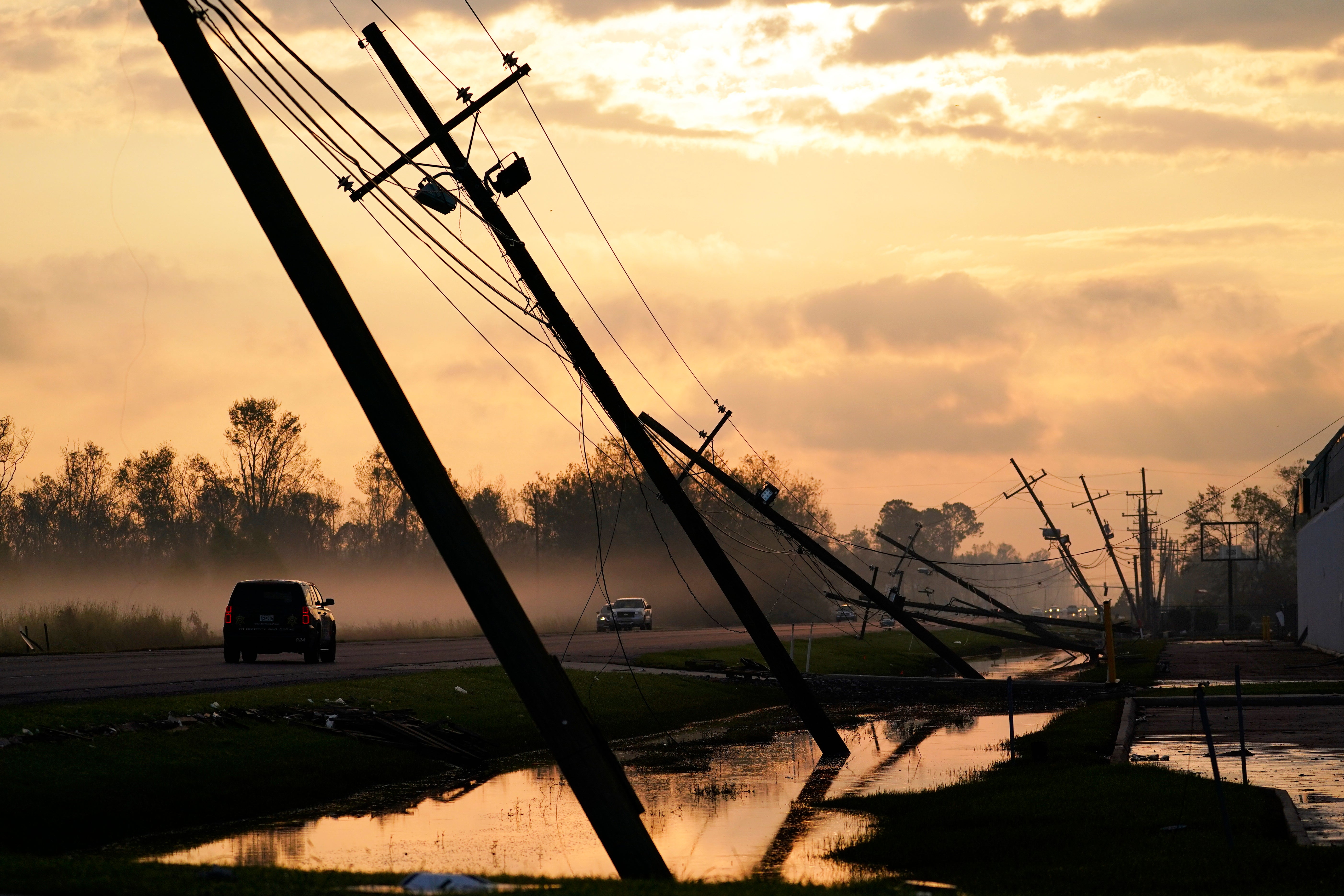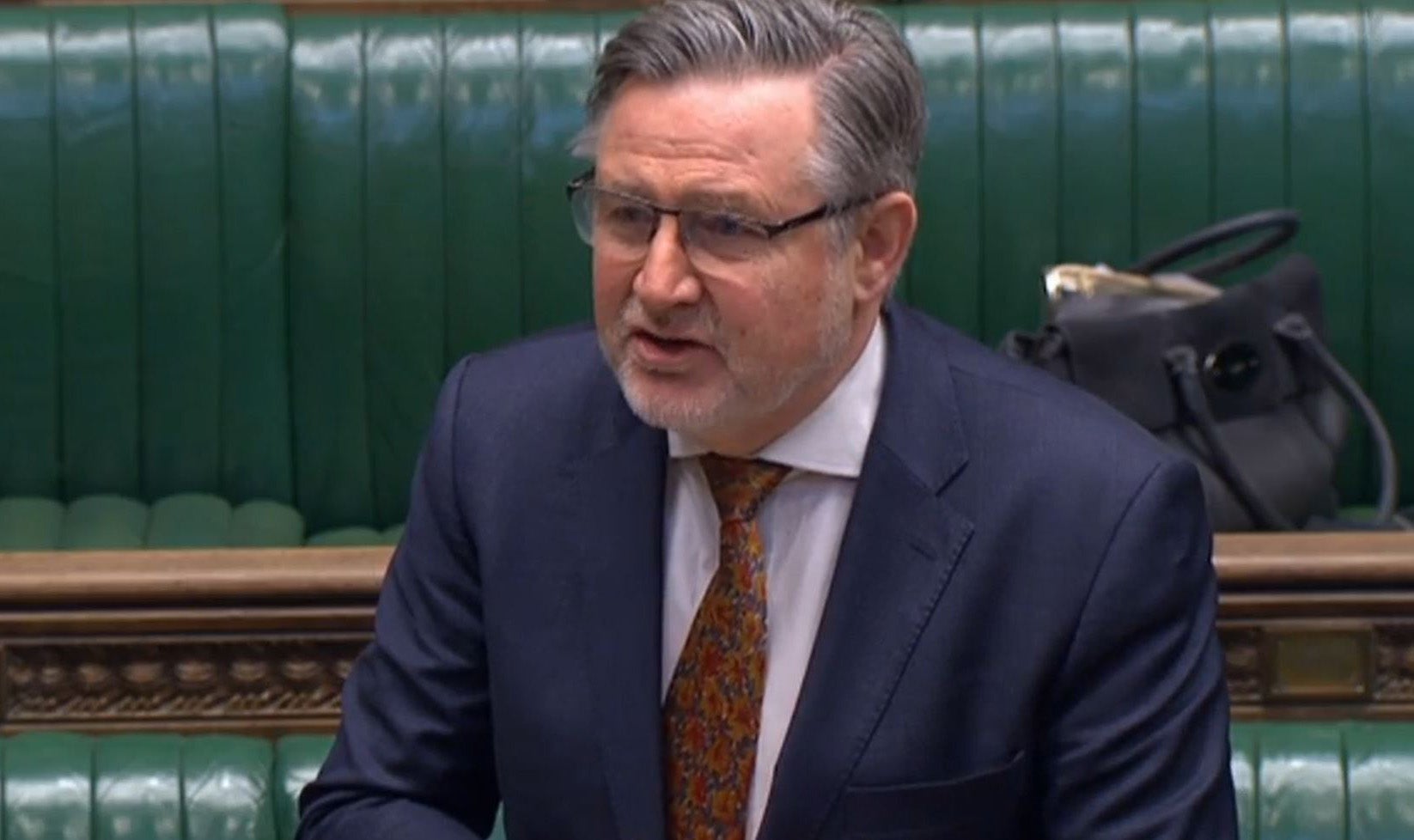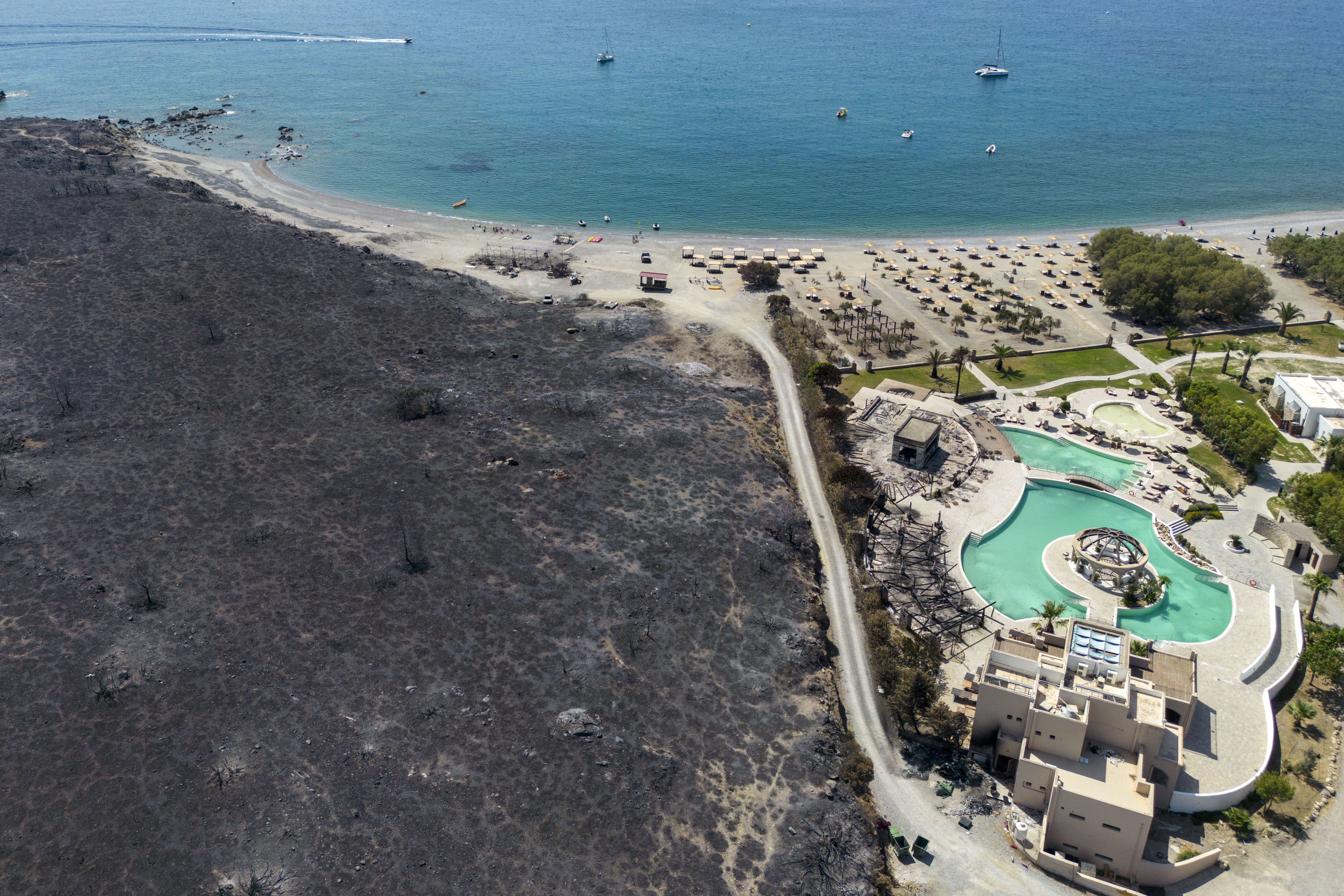Greece fires – live: Rhodes state of emergency remains as flames reach outskirts of Athens
Fire Service spokesman Ioannis Artopios said 12 villages were ordered to be evacuated
Your support helps us to tell the story
From reproductive rights to climate change to Big Tech, The Independent is on the ground when the story is developing. Whether it's investigating the financials of Elon Musk's pro-Trump PAC or producing our latest documentary, 'The A Word', which shines a light on the American women fighting for reproductive rights, we know how important it is to parse out the facts from the messaging.
At such a critical moment in US history, we need reporters on the ground. Your donation allows us to keep sending journalists to speak to both sides of the story.
The Independent is trusted by Americans across the entire political spectrum. And unlike many other quality news outlets, we choose not to lock Americans out of our reporting and analysis with paywalls. We believe quality journalism should be available to everyone, paid for by those who can afford it.
Your support makes all the difference.A wildfire has triggered a series of massive explosions at an air force ammunition depot in central Greece.
The depot was evacuated before the explosions, which shattered windows in the surrounding area. No injuries were reported, although continued blasts prevented firefighting teams from approaching the site.
Greek state broadcaster ERT said the facility is in the coastal town of Nea Aghialos near the Volos area.
The fire reached the ammunition storage facility about four miles north of the major military air base in Nea Anchialos. Local media reported that bombs and ammunition for Greek F-16 fighters were stored at the site
The fighter jets are reportedly being moved from the air base.
Fire Service spokesman Ioannis Artopios said 12 villages were ordered to be evacuated in the Volos-Nea Anchialos area.
Meanwhile, the blaze reached the outskirts of Athens, with 61 fires breaking out across the country in 24 hours.
Deadly wildfires on Greece’s mainland have killed two as wildfires spread in Europe and north Africa including Greece, Portugal, Turkey, Italy, France, Croatia, Spain, Algeria and Tunisia.
Exclusion zone set up around Greek military base after wildfires trigger powerful explosions
Authorities are maintaining an exclusion zone around an air force base in central Greece where wildfires have triggered powerful explosions at an ammunition depot.
The blasts late Thursday at the 111th Combat Wing base facilities — among the largest in the country — shattered windows in nearby towns and prompted an evacuation of more than 2,000 people, while fighter jets nearby were moved to another base.
A civilian traffic ban and evacuation order remained in effect in a 3-kilometer (2-mile) radius of the blast site.
Fueled by successive heat waves and strong gusts of wind, wildfires have raged around Greece and other Mediterranean countries over the past two weeks, scorching dozens of square kilometers of land outside Athens, on the island of Rhodes and elsewhere.
The ammunition depot blasts were broadcast live on local television reports, near the central city of Volos, one showing a ground-shaking fireball emerging from a mountainous area.
After the evacuations were ordered, residents were rushed onto private boats mobilized by the coast guard and taken to a conference center in Volos, some 20 kilometers (12.5 miles) from the weapons depot.
A drop in temperatures and calmer winds assisted firefighters early Friday, and all major fires were contained at midday
Earth ‘needs a world climate organisation like the WHO’ - scientist says
Countries should band together and form a world climate crisis organisation akin to the World Health Organisation (WHO), to steer humanity through the unfolding disasters associated with the heating planet, one of the UK’s leading climate scientists has said.
Sir David King, former UK chief scientific adviser and chairman of the Climate Crisis Advisory Group, said it is now “almost certain” that the global average temperature will rise to at least 2C above pre-industrial levels, which scientists have warned could lead to further irreversible heating.
At 1.2C the Earth is already experiencing severe heatwaves, wildfires, storms, sea-level rise and species decline, with UN secretary-general Antonio Guterres saying: “The era of global warming has ended, the era of global boiling has arrived.”
This is primarily driven by the burning of fossil fuels since the industrial revolution and has led to a build up of greenhouse gases - mainly carbon dioxide, methane, nitrous oxide and water vapour - in the atmosphere.

Smoke billows from wildfire burning close to homes in Lecce
Bold action needed to counter ‘significant threat’ says expert
Extreme heat, flooding, wildfire smoke, increased spread of disease and loss of food means climate change poses “a significant threat to human health around the world”.
That is according to Sir David King, former UK chief scientific adviser and chairman of the Climate Crisis Advisory Group.
The expert has said there needs a united global effort to contain.
He told the PA news agency: "In terms of a health crisis, such as the Covid crisis, we have a World Health Organisation and it's based in Geneva and is part of the United Nations. We don't have a world climate crisis organisation.
"That's what we need, so that all countries of the world could come together through a body of this kind, as we do when there's a health crisis, we all contribute to the cost of the WHO.
"We need a global system that pulls us all together to battle with this external threat to our manageable future."
Sir David has proposed a planning strategy of four Rs to deal with the climate crisis.
Rapid emissions cuts through reducing fossil fuel use and deforestation by five times the current rate; removing carbon from the atmosphere with new technology; repairing, or refreezing, the Arctic so that more solar energy is reflected off white ice instead of absorbed by dark waters; and resilience - adapting to the degree of change that is now inevitable.
He said reducing demand for high-carbon industries like flying is the only realistic way to immediately bring emissions down in the absence of sustainable technology, but the UK Government is failing to do this, despite recommendations to do so from the Climate Change Committee.
The climate scientist said: "This is the first Government that has done this. Until 2017, Governments of all colours followed this policy very closely but we've seen that really being ignored now.
"That is pure expediency and I feel that we're being badly let down by leadership."
When will heatwave in Europe end? New forecast shows relief in sight for countries fighting wildfires
Southern European countries suffering under a sizzling heatwave for weeks can finally hope for some respite as a new forecast reveals “subtle changes in the jet stream” that are expected to bring temperatures down.
With shattered temperature records, devastating wildfires in Greece and tragic loss of lives, people have been anxiously awaiting relief from intense heat conditions that gripped Europe this month.
The latest forecast from the UK’s Met Office offers a glimmer of hope as conditions are projected to shift slightly, indicating the weakening of the heat dome that enveloped the southern part of the continent.
Video: Suspected arsonist caught starting wildfires in Italy by police drone
Labour MP calls for “war footing” against climate crisis
Labour MP Barry Gardiner has said the UK should be on a “war footing” against the climate crisis.
Speaking to BBC’s Newsnight on Thursday, he said: “If this were a war, we wouldn’t be arguing whether the Labour strategy or the Tory strategy were better, we’d be working together to try and win.
“Well it is a war, it’s a war for survival, and climate change threatens everything.
“It threatens our food security through drought, desertification, it threatens our homes and our cities through floods and coastal inundation.
“What we need to be doing is saying, let’s get together, let’s mobilise on a war footing.”

Tourists permitted to return to accomodation
Greece’s climate ministry has said tourists and residents have been permitted to return to their accomodation in several areas of Rhodes which have been hit by wildfires.
Kiotari, Vati and Gennadi are all among the locations where holidaymakers can now move back to following the blaze.
It was reported earlier on Friday that the wildfires are dying down.
The climate ministry has also deemed Malona, Charaki, Massari, Asklipio, Lachania, and Plimmyri to be safe.
Wildfires in Greece abated on Friday after burning for nearly two weeks.
Emergency services are working to prevent new flare-ups in the central part of the country, where people had fled massive explosions at an ammunition depot the day before.

Other Mediterranean countries are also struck by extreme heat and deadly wildfires.
As tens of thousands flee from fires in Greece that have killed at least three people, other Mediterranean countries are also struck by extreme heat and deadly wildfires.
Regions classified as being at high risk of fire
Greek authorities have listed six regions which are at a "very high fire risk" despite the flames being less substantial than in previous days.
Wildfires abated on Friday after burning for nearly two weeks.
Areas on the high alert are now: Attica, Central Greece, Peloponnese region, North Aegean, South Aegean, including Rhodes, and Crete.
However, no areas are now listed as being in “extreme danger”.






Join our commenting forum
Join thought-provoking conversations, follow other Independent readers and see their replies
Comments